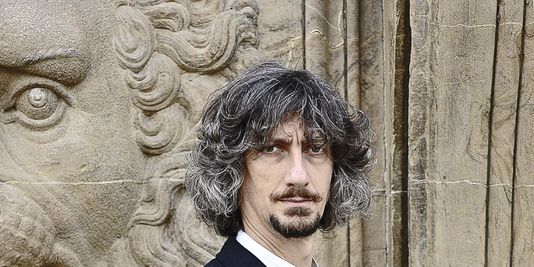
The world premiere recording of a semi-reconstructed opera by Antonio Vivaldi is interesting enough, but the singers on this particular album make the music positively magnetic.
- Classical Music 101: What Does A Conductor Do? - June 17, 2019
- Classical Music 101 | What Does Period Instrument Mean? - May 6, 2019
- CLASSICAL MUSIC 101 | What Does It Mean To Be In Tune? - April 23, 2019
Vivaldi (1678-1741) has come down to us as a master Baroque symphonist and violin virtuoso. But he was also the Verdi of his day, enjoying fame for his operas beyond the borders of Italian principalities.
 Bits and pieces of the Red Priest’s four-dozen-and-counting operas gathered dust in a Turin University library until two decades ago, when scholars began taking a fresh interest in what is really some of the composer’s finest work.
Bits and pieces of the Red Priest’s four-dozen-and-counting operas gathered dust in a Turin University library until two decades ago, when scholars began taking a fresh interest in what is really some of the composer’s finest work.
The latest bit of scholarly sleuthing by Italian period-performance conductor and Baroque flutist Federico Maria Sardelli has produced two colourful acts of a 1714 opera, Orlando Furioso.
It is recorded on two CDs as Vol. 52 of a longstanding archival project (the Vivaldi Edition, funded largely by the arts council of the Piemonte region) and distributed through financially struggling French classical label Naïve.
The story behind this reconstruction is fascinating, underlining how different artistic life was in the pre-copyright era.
Vivaldi was producing another composer’s Orlando Furioso in 1713 that was such a hit, it ran for something like 70 performances. To keep it fresh for its Venetian public, Vivaldi started rewriting arias, cutting bits and adding others.
By the next season, the impresario had enough new material to trash all of the old stuff and — Sardelli assumes — call this Orlando his own, making it Vivaldi’s third original opera in the chronology as we know it today.
Sardelli couldn’t find a third act, nor an overture (known as a sinfonia). He has left the opera without a conclusion, but did add a rarely performed concerto written around the same time as an overture.
The recording made in Florence this past summer is spectacular, thanks to beautiful work by Sardelli and period-instrument ensemble Modo Antiquo and a cast of seven soloists, including Canadian expat countertenor David DQ Lee as Ruggiero.
Lee has developed beautifully while living and working in Europe over the past few years, adding layers of finesse onto what was always a powerful voice.
There was also a wonderful discovery here for me: Parisian contralto Delphine Galou, cast as Medoro. I’ve wondered for years if there could ever be an eventual successor for Ewa Podles — a true, goosebump-inducing contralto. Galou might be the one (although you can’t really tell until you hear a singer live).
You can find audio samples and much more information (in French) on the album here.
This is a making-of video:
All the voices on this album are excellent, but I do want to share a bit more of the current state of David DQ Lee’s art (in an aria from Gluck’s Telemaco) as well as the beauty of Delphine Galou’s singing (the great Bach aria from the St Matthew Passion, “Erbarme dich, mein Gott”):
John Terauds
- Classical Music 101: What Does A Conductor Do? - June 17, 2019
- Classical Music 101 | What Does Period Instrument Mean? - May 6, 2019
- CLASSICAL MUSIC 101 | What Does It Mean To Be In Tune? - April 23, 2019



